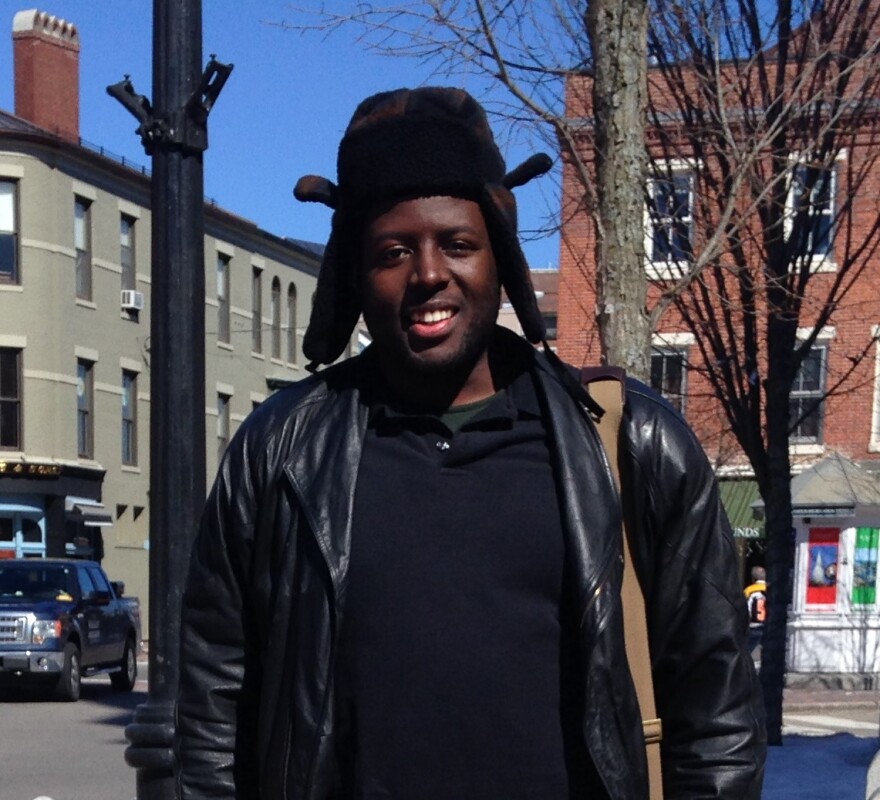Last year, 29 year old Robert Wilson was accused of a felony-level crime and faced the possibility of three and a half to seven years in prison. On Monday, after representing himself “pro se," the jury found him not guilty.
Generally speaking, this doesn’t happen. Litigants represent themselves frequently in civil court, but rarely do criminal defendants argue by themselves before a jury. Wilson had even refused stand-by council.
Rockingham County Attorney Patricia Conway prosecuted the case. She says after 18 years as a prosecutor, “this is the second time I’ve had a jury trial with a pro se individual.”
The first time, she won.
Three attorneys from Conway’s office sat in the gallery as the trial began. They were there purely there out of curiosity, they said.
The state doesn’t keep data on self-representing defendants. However, Superior Court Chief Justice Tina Nadeau says, from her experience, “they’re not likely to be successful.”
Rob Wilson talks in paragraphs. He’s 29, grew up poor, was raised by his grandmother in Chicago, and moved to New Hampshire 11 years ago. “Black voices like mine aren’t always present,” he says.
Three years ago, Wilson was student body president at UNH. But when I met him in December, he had just spent five months in jail, and was sleeping next to his laundry basket and trombone, in his SUV.
Police had charged Wilson with felony-level criminal threatening after an altercation with his housemates in Portsmouth. They told police he threatened them with a knife. He said while there was an argument, he had never picked up a knife.
Unable to post bail, Wilson spent 6 months in jail. Ultimately, a judge let him go on personal recognizance.
When it came to getting an attorney, things did not go very well. Wilson says “there is a culture between public defenders and prosecutors, even their workload, that oftentimes robs people accused of a crime of the resources that they would need to defend themselves.”
In New Hampshire, judges usually give poor defendants one opportunity to request a new attorney. Wilson was unsatisfied with his public defender. His subsequent court-appointed lawyer quit, and Wilson said the second lawyer’s replacement didn't put in the effort he deserved. Wilson struck out on his own.
At the New Hampshire Judicial Council, Executive Director Chris Keating says he can understand. “You know when someone recommends a lawyer to you, and you pay them $5,000, $10,000, $50,000 to represent you, you kind of automatically trust them.”
The New Hampshire Judicial Council funds the Public Defenders program and contracts court appointed attorneys. Keating says because poor clients don’t have a choice over who represents them, public defenders have to work really hard to build trust -- in a way privately hired attorneys do not.
However, Keating says, generally speaking “I think New Hampshire has provided adequate resources for the public defenders to be able to do their job effectively, and I have every confidence in their abilities.”
Wilson did not share that confidence.
When it came time for trial, he opted to go it alone. “I represent ‘live free or die’ in this courtroom, even by my choice to defend myself,” Wilson says.
In trial, Wilson brought up issues you don’t usually hear discussed in New Hampshire courtrooms. More than once, he asked jurors to question whether implicit or even explicit racial bias caused omissions in police report logs and warrant affidavits.
Jonathan Rapping is a law professor whose public defender training program in Atlanta, “Gideon’s Promise,” won him a 2014 MacArthur Genius Grant. He says by focusing on Wilson’s own life experience and relevant social issues, “this young man did something that as a public defender trainer, many of us are trying to train our public defenders to do.”
“If we are really going to help drive just outcomes,” Rapping says, then “we should be able to talk about the human condition and intangible factors that really do affect the way people think, and the assumptions they have.” Rapping says, “we’re struggling to get judges and lawyers to understand that this is relevant to justice.”
County Prosecutor Patricia Conway says lawyers don’t usually use “social policy issues” to call police and witness credibility into question. But, she says, “in terms of arguing before a jury, they can really relate to those issues.”
It’s hard to know what, exactly, led the jury to find Rob Wilson not guilty. What is certain is that as a defendant going it alone in a jury trial -- he beat the odds.







